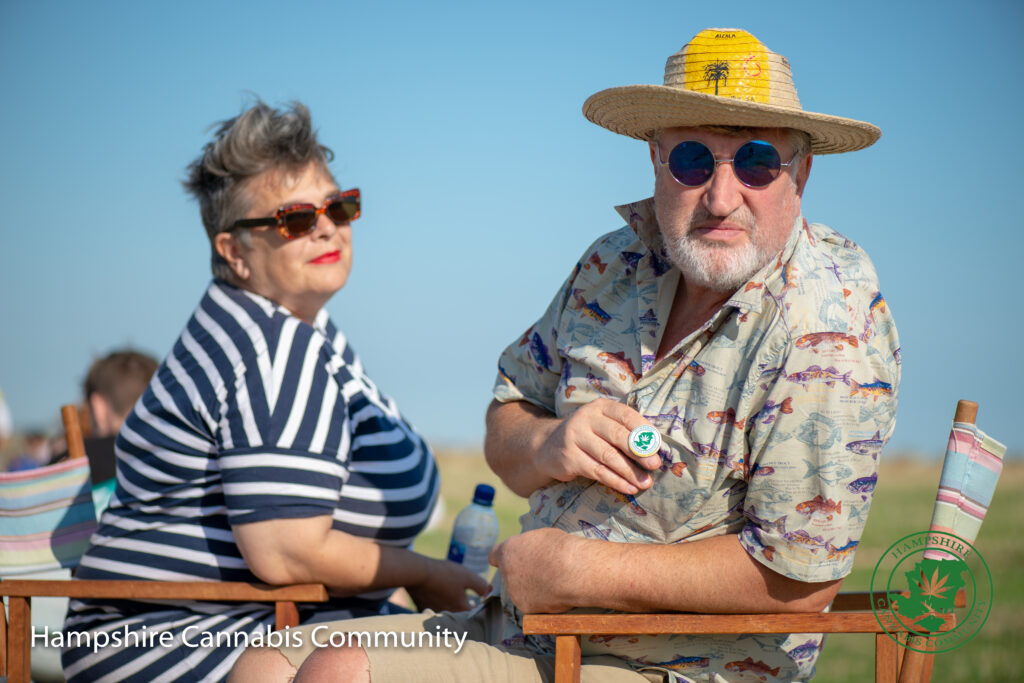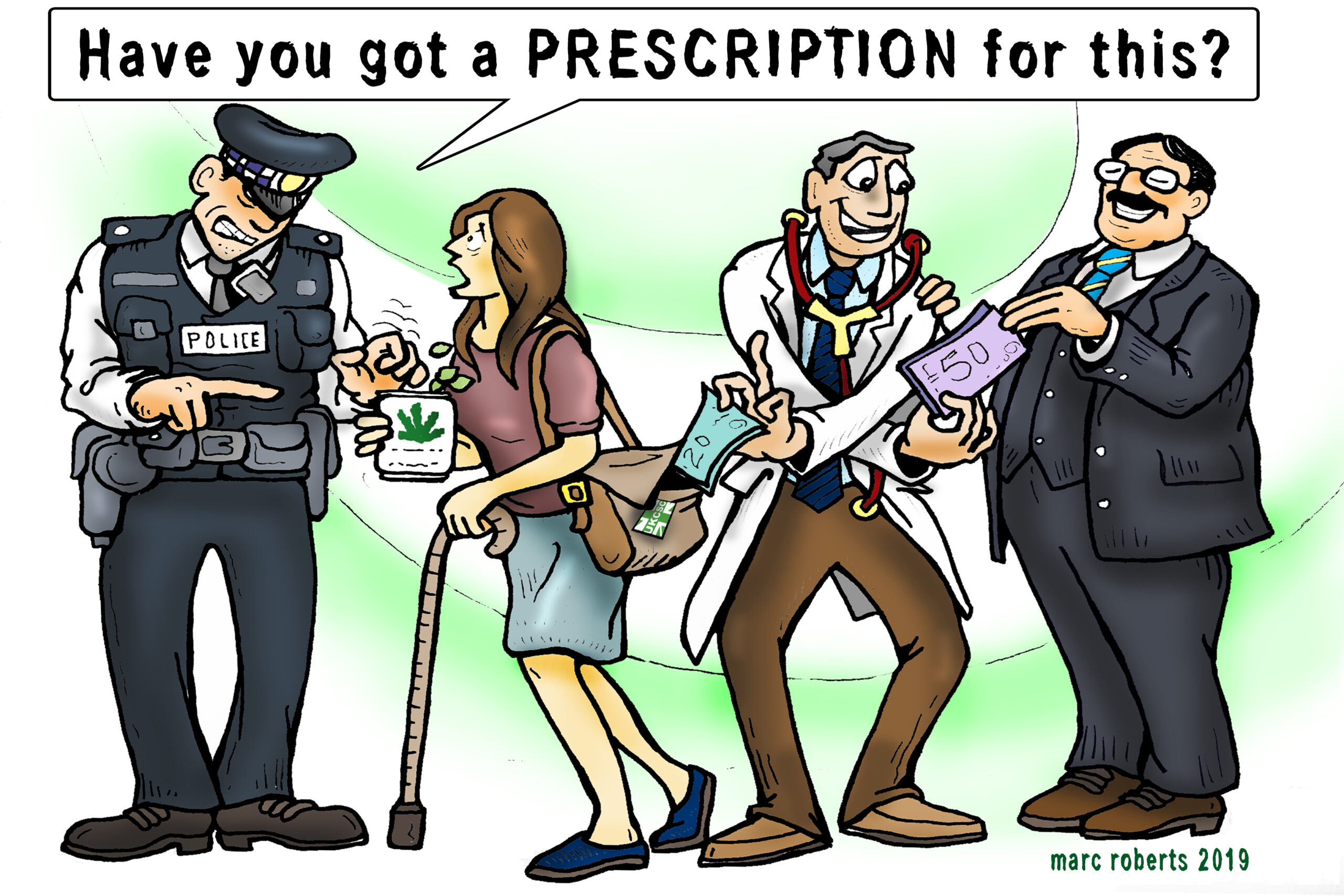“Governments create nothing and have nothing to give but what they have first taken away — you may put money in the pockets of one set of Englishmen, but it will be money taken from the pockets of another set of Englishmen, and the greater part will be spilled on the way. Every vote given for Protection is a vote to give Governments the right of robbing Peter to pay Paul and charging the public a handsome commission on the job.” – Winston Churchill
Despite medical cannabis now being legal in the UK for six months the NHS this week admitted that only three patients have received a publicly-funded prescription.
By a stark contrast, there are already more private ‘medical cannabis’ companies set up which have more employees than there are patients able to afford a private prescription.
More money and resources are going into setting up businesses to profit out of medical cannabis than there is going into reducing the harms of prohibition to people being punished by unjust policy.
Medical cannabis is in itself a form of prohibition that can be as or even more cruel than the illicit market that most patients still have to pay. But how much is freedom worth if you can afford it?
There are more people working on tieing up business contracts to make money out of medical cannabis with much more excitement than there are prepared to financially back and stand up for the rights of the people risking their freedom to produce medicine now, while medical specialists with years of training – although sadly not about the endocannabinoid system – refuse to help end patients’ suffering or sign the paper that takes away an added anxiety whereby patients have a legal prescription.

Where were these valiant new entry campaigners throughout the last decade while patients have been persecuted? While patients have had to grow their own at risk of raids and prison? Why have they not been standing up for cannabis consumers? Don’t worry about that, they say, you can get a prescription.
Cannabis prohibition isn’t over until these demands are met:
- The right to grow at home for personal use.
- The right to share what you grow with another adult.
- The right to consume cannabis as a parent without Social Services being alerted or having your children removed from you.
- The right to a prescription from your GP.
- Employees are not required to be subject to drug tests for cannabis at work nor is it a reason to withhold employment to an applicant.
- No risk of being evicted for cannabis consumption or possession in rented accomodation.
- Records for previous offences for cannabis related “crimes” are expunged.
- Drivers are not penalised for consuming cannabis in their spare time.
- Cannabis consumption is tolerated in public spaces.
- Social spaces for cannabis social activities are easily accessible.
- The ability to set up a cannabis related business without having to have a certain amount of cash in the bank or be dependent on corporate investors.
- Cultivation and processing facilities can operate under a legal framework for commercial purposes.
- Cannabis is priced reasonably without being taxed to the point that people resort to illicit market commercial production.
- Cannabis is not on the Misuse of Drugs Act 1971.
- Consumers can call the police about a crime without risking their own freedom.
In the process of creating cannabis policies, we are supposed to be rectifying the legal situation for patients to make sure they do not have to resort to an illicit market. If the illicit market is still a better price option and patients can get it from someone they know and trust, or on the other end of the scale find a stranger and buy it on the street or the internet, has the policy worked?

While deliberating over the best policy for patients we should not forget nor deny the rights of healthy people to access something that provides them the same health benefits (and as preventative medicine, a concept Britain does not really appreciate but which saves the healthcare system from expense). The illicit market is primarily accessed by healthy people as an alternative to alcohol or as a therapeutic. Creating a division between the two user groups further increases stigma against normal members of society that have supported the rights of patients and their plea to be first. The simple truth is, and I say this as a patient myself, if all adults were legally able to grow cannabis and there were cannabis testing labs operating as legal businesses, patients would not be suffering from waiting for a tailored pharmaceutical option prescribed by a cannabis specialist.
With over 70 cannabis social clubs across the UK, we have learned that people like to come and speak to someone about their condition. They like to meet other patients and the family members of patients that have been through a similar journey and can share their stories and offer support. Large membership user groups have vast and diverse knowledge of different cultivars, and being part of a community of clubs means many members know people with medical conditions across the country that can be linked up with new members who are on a personal educational health journey. This is what prohibition is trying to stop. This is what is not being supported by the corporate entities that have come along in a bid to generate profit.
Today and for some time to come, cannabis specialists in the UK healthcare system don’t and won’t exist, and many companies have told us they cannot work with people who have been involved in breaking the law around cannabis. This is cutting out cannabis activists and campaigners who have helped Britain get to this stage of the campaign at a time when the cannabis policy discussion is being shaped in the public’s eye by corporate lobbying.
Individuals and businesses that are prepared to cash in before the above list has been resolved need to take some time to connect with people who have been harmed by the policies that are being sustained by a medical-only policy for standardised cannabis products.




